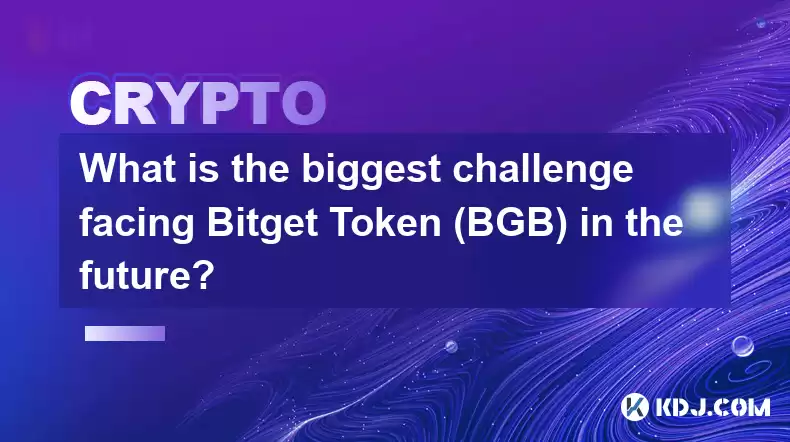-
 Bitcoin
Bitcoin $119900
0.94% -
 Ethereum
Ethereum $4633
9.35% -
 XRP
XRP $3.254
3.60% -
 Tether USDt
Tether USDt $0.9998
-0.04% -
 BNB
BNB $837.0
3.48% -
 Solana
Solana $194.3
10.87% -
 USDC
USDC $0.9998
-0.02% -
 Dogecoin
Dogecoin $0.2370
5.91% -
 TRON
TRON $0.3528
1.79% -
 Cardano
Cardano $0.8460
9.05% -
 Chainlink
Chainlink $23.61
12.06% -
 Hyperliquid
Hyperliquid $44.91
3.99% -
 Stellar
Stellar $0.4475
2.93% -
 Sui
Sui $3.899
5.78% -
 Bitcoin Cash
Bitcoin Cash $620.7
6.74% -
 Hedera
Hedera $0.2602
4.59% -
 Ethena USDe
Ethena USDe $1.000
-0.03% -
 Avalanche
Avalanche $24.84
8.52% -
 Litecoin
Litecoin $131.0
9.17% -
 Toncoin
Toncoin $3.509
3.47% -
 UNUS SED LEO
UNUS SED LEO $9.170
2.15% -
 Shiba Inu
Shiba Inu $0.00001360
4.82% -
 Uniswap
Uniswap $11.66
5.28% -
 Polkadot
Polkadot $4.180
7.93% -
 Ethena
Ethena $0.8242
2.31% -
 Dai
Dai $0.9998
-0.04% -
 Cronos
Cronos $0.1630
-3.04% -
 Pepe
Pepe $0.00001224
9.07% -
 Bitget Token
Bitget Token $4.464
1.16% -
 Aave
Aave $321.9
9.17%
What is the biggest challenge facing Bitget Token (BGB) in the future?
Bitget faces challenges in competition, regulation, innovation, market volatility, and security concerns, but addresses these through innovative features, compliance, R&D, risk management, and multi-layered security measures.
Dec 25, 2024 at 08:46 pm

Key Points:
- Competition in the Cryptocurrency Exchange Market: Bitget faces intense competition from established cryptocurrency exchanges such as Binance, Coinbase, and Huobi.
- Regulatory Uncertainty: The cryptocurrency industry is subject to varying regulatory frameworks in different jurisdictions, which can impact the operations of exchanges like Bitget.
- Technological Advancements: The rapid evolution of blockchain technology and the emergence of new cryptocurrencies pose challenges for exchanges to keep pace with innovation and meet user demands.
- Market Volatility and Price Fluctuations: The cryptocurrency market is known for its volatility, which can affect the value of BGB and the profitability of trading on Bitget.
- Security Concerns: Cryptocurrency exchanges are vulnerable to security breaches, hacking attempts, and fraudulent activities, which can damage Bitget's reputation and user trust.
Challenges and Solutions:
1. Competition in the Cryptocurrency Exchange Market
- Challenge: Bitget faces stiff competition from larger exchanges with more established user bases, higher liquidity, and wider offerings.
- Solution: Bitget aims to differentiate itself by focusing on innovative trading features, such as the "Super Trading Mode," which allows users to leverage up to 125x on their positions. The exchange also offers a comprehensive suite of products and services, including spot trading, margin trading, futures trading, and staking.
2. Regulatory Uncertainty
- Challenge: The cryptocurrency industry lacks clear regulatory frameworks in many jurisdictions. This uncertainty can create legal and operational risks for exchanges like Bitget.
- Solution: Bitget prioritizes compliance and works closely with regulatory authorities worldwide to ensure adherence to applicable laws. The exchange has obtained regulatory licenses in Singapore and Dubai and is actively pursuing licenses in other key markets.
3. Technological Advancements
- Challenge: The rapid pace of blockchain innovation and the emergence of new cryptocurrencies require exchanges to constantly update their systems and integrate new technologies.
- Solution: Bitget invests heavily in research and development to stay at the forefront of blockchain innovation. The exchange has implemented a proprietary matching engine for faster order execution and partnered with leading blockchain projects to offer users access to the latest cryptocurrencies and dApps.
4. Market Volatility and Price Fluctuations
- Challenge: The cryptocurrency market is highly volatile, which can impact the value of BGB and the profitability of trading on Bitget.
- Solution: Bitget employs risk management tools and strategies to help users mitigate the risks associated with market volatility. The exchange offers stop-loss orders, take-profit orders, and hedging options to allow users to manage their positions and protect their capital.
5. Security Concerns
- Challenge: Cryptocurrency exchanges are potential targets for security breaches and cyberattacks.
- Solution: Bitget employs multi-layer security measures to safeguard user assets and protect the integrity of the platform. The exchange uses advanced encryption technologies, cold storage for crypto assets, and regular security audits to prevent unauthorized access and malicious activities.
FAQs:
Q: What is the potential impact of competition on the growth of Bitget?
A: Competition from established exchanges can hinder Bitget's market share and profitability. However, the exchange's focus on innovation and niche offerings could help it differentiate itself and attract a loyal user base.
Q: How does regulatory uncertainty affect Bitget's operations?
A: Regulatory uncertainty can create legal risks, limit Bitget's expansion plans, and potentially disrupt its day-to-day operations. The exchange's efforts to obtain regulatory licenses and comply with applicable laws are crucial for mitigating these risks and ensuring long-term stability.
Q: What are the advantages of using Bitget's "Super Trading Mode"?
A: Bitget's "Super Trading Mode" allows users to amplify their trading gains by leveraging up to 125x on their positions. However, this high leverage also carries significant risks, and users should carefully consider their risk tolerance before using this feature.
Q: How does Bitget address the security risks associated with cryptocurrency exchanges?
A: Bitget employs various security measures, such as multi-layer encryption, cold storage, and regular security audits, to protect user assets and prevent unauthorized access. However, it is worth noting that no exchange is immune to security risks, and users should practice caution and monitor their accounts regularly.
Disclaimer:info@kdj.com
The information provided is not trading advice. kdj.com does not assume any responsibility for any investments made based on the information provided in this article. Cryptocurrencies are highly volatile and it is highly recommended that you invest with caution after thorough research!
If you believe that the content used on this website infringes your copyright, please contact us immediately (info@kdj.com) and we will delete it promptly.
- Unich's OTC Exchange: Surging with $1.2B Volume – What's the Hype?
- 2025-08-13 02:50:11
- MoonBull's Explosive Moves: Your Crypto Whitelist Ticket to Ride!
- 2025-08-13 02:30:11
- MAGACOIN Finance: Don't Miss the Presale Bonus!
- 2025-08-13 02:30:11
- Trump's Crypto Kingdom: $2.4 Billion and Counting
- 2025-08-13 02:50:11
- Solana, LSTs, and SEC Approval: A New Dawn for Crypto?
- 2025-08-13 02:55:12
- Bitcoin's Profit Surge: Unpacking the BTC Value Boom
- 2025-08-13 02:55:12
Related knowledge

How to purchase Aragon (ANT)?
Aug 09,2025 at 11:56pm
Understanding Aragon (ANT) and Its PurposeAragon (ANT) is a decentralized governance token that powers the Aragon Network, a platform built on the Eth...

Where to trade Band Protocol (BAND)?
Aug 10,2025 at 11:36pm
Understanding the Role of Private Keys in Cryptocurrency WalletsIn the world of cryptocurrency, a private key is one of the most critical components o...

What is the most secure way to buy Ocean Protocol (OCEAN)?
Aug 10,2025 at 01:01pm
Understanding Ocean Protocol (OCEAN) and Its EcosystemOcean Protocol (OCEAN) is a decentralized data exchange platform built on blockchain technology,...

How to invest in Kyber Network Crystal v2 (KNC)?
Aug 12,2025 at 05:21pm
Understanding Kyber Network Crystal v2 (KNC)Kyber Network is a decentralized liquidity hub built on the Ethereum blockchain that enables instant token...

Where can I buy UMA (UMA)?
Aug 07,2025 at 06:42pm
Understanding UMA and Its Role in Decentralized FinanceUMA (Universal Market Access) is an Ethereum-based decentralized finance (DeFi) protocol design...

What exchanges offer Gnosis (GNO)?
Aug 12,2025 at 12:42pm
Overview of Gnosis (GNO) and Its Role in the Crypto EcosystemGnosis (GNO) is a decentralized prediction market platform built on the Ethereum blockcha...

How to purchase Aragon (ANT)?
Aug 09,2025 at 11:56pm
Understanding Aragon (ANT) and Its PurposeAragon (ANT) is a decentralized governance token that powers the Aragon Network, a platform built on the Eth...

Where to trade Band Protocol (BAND)?
Aug 10,2025 at 11:36pm
Understanding the Role of Private Keys in Cryptocurrency WalletsIn the world of cryptocurrency, a private key is one of the most critical components o...

What is the most secure way to buy Ocean Protocol (OCEAN)?
Aug 10,2025 at 01:01pm
Understanding Ocean Protocol (OCEAN) and Its EcosystemOcean Protocol (OCEAN) is a decentralized data exchange platform built on blockchain technology,...

How to invest in Kyber Network Crystal v2 (KNC)?
Aug 12,2025 at 05:21pm
Understanding Kyber Network Crystal v2 (KNC)Kyber Network is a decentralized liquidity hub built on the Ethereum blockchain that enables instant token...

Where can I buy UMA (UMA)?
Aug 07,2025 at 06:42pm
Understanding UMA and Its Role in Decentralized FinanceUMA (Universal Market Access) is an Ethereum-based decentralized finance (DeFi) protocol design...

What exchanges offer Gnosis (GNO)?
Aug 12,2025 at 12:42pm
Overview of Gnosis (GNO) and Its Role in the Crypto EcosystemGnosis (GNO) is a decentralized prediction market platform built on the Ethereum blockcha...
See all articles

























































































